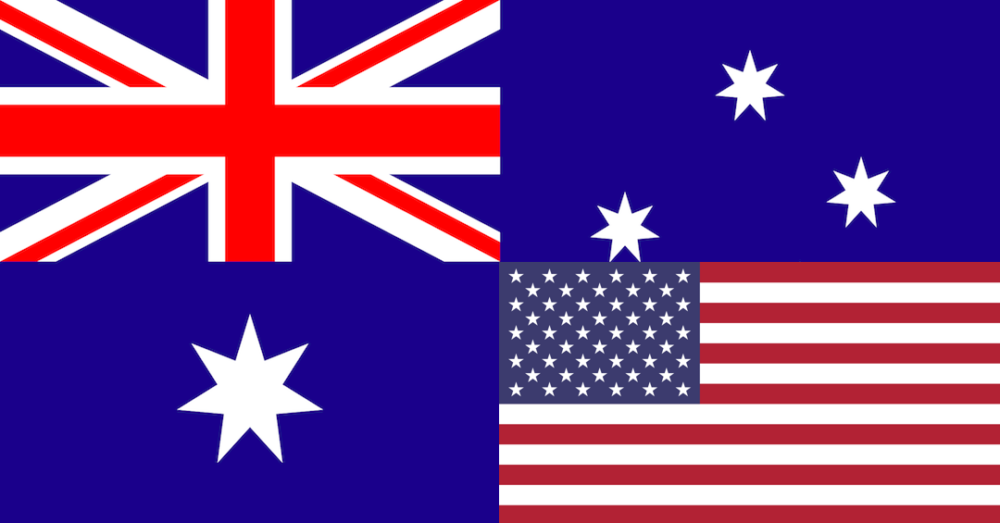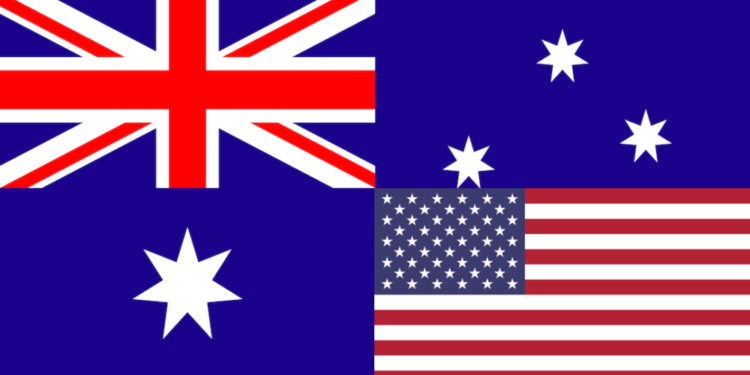For most of its 110 pages the review’s mental contortions explain why “defending” Australia is going to have to look a whole lot like preparing to pick a fight with an Asian nation thousands of kilometers away, writes Caitlin Johnstone.

By Caitlin Johnstone
CaitlinJohnstone.com

The Australian government has released the declassified version of its highly anticipated 2023 Defence Strategic Review (DSR), and the war propagandists are delighted.
Sydney Morning Herald’s Matthew Knott, most well-known for being told by former prime minister Paul Keating to “do the right thing and drum yourself out of Australian journalism” over his role in Nine Entertainment’s despicable Red Alert war-with-China propaganda series, has a new propaganda piece out titled “Defence review pulls no punches: China the biggest threat we face“.
Here are the first few paragraphs:
“Angus Houston and Stephen Smith have delivered a blaring wake-up call to any Australians who think they still live in a sanctuary of safety at the southern edge of the Earth: you’re living in the past.
To those inside and outside the Australian Defence Force who think business-as-usual will cut it in the future: you’re delusional.
Their message to anyone confused about the biggest threat to Australia’s national security is similarly blunt: it is our largest trading partner, China.
Like a pair of doctors delivering confronting news to an ill patient, the two men tasked with reshaping Australia’s military for the 21st century have opted for admirable candour in their defence strategic review.
Rejecting vague language about rising tensions in the Indo-Pacific, the former defence chief and defence minister call out just one nation – China – for threatening Australia’s core interests.”
“Like a pair of doctors.” That’s the kind of third-rate propaganda we get in the nation with the most consolidated media ownership in the western world.
More fear mongering from the SMH.
The defence review itself says “an outright invasion of the continent remains only a “remote” possibility”
China is not going to attack Aust. but reading the media you’d think it’s just around the corner.#auspol https://t.co/zEbAHgqlev
— AWPR (@WarPowersReform) April 24, 2023
The “defence” review focuses not on defending the shores of the continent of Australia, but instead over and over again makes mention of the need to protect the “rules-based order” in Australia’s “region” — the so-called “Indo-Pacific” — which includes China. It is for the most part 110 pages of mental contortions explaining why “defending” the nation of Australia is going to have to look a whole lot like preparing to pick a fight with an Asian nation thousands of kilometers away.
The public DSR actually only mentions China by name eight times, though by Knott’s ecstatic revelry you’d assume that was the only word it contains. In contrast, the document mentions the United States no fewer than 38 times, with the United Kingdom getting two mentions, New Zealand getting only one, and Australia’s neighbors like Papua New Guinea and Indonesia not mentioned by name at all.
Australia is even more confused. #NATO #AUKUS pic.twitter.com/e1FGdmV5Q1
— Jaraparilla ?? ?? (@jaraparilla) April 24, 2023
“Our Alliance with the United States will remain central to Australia’s security and strategy,” the review reads. “The United States will become even more important in the coming decades. Defence should pursue greater advanced scientific, technological and industrial cooperation in the Alliance, as well as increased United States rotational force posture in Australia, including with submarines.”
The overshadowing presence of the United States in a document that is ostensibly about Australian security interests would be confusing if you did not know that Australia has for generations served as a U.S. military and intelligence asset, where its interests are so subordinated to Washington’s that Australians are not even allowed to know if the U.S. is bringing nuclear weapons into their country.
In a foreshadowing of the DSR’s pledge to pursue even greater cooperation with the U.S., last year Australia’s Secretary of Defence Richard Marles said that the Australian Defence Force is moving “beyond interoperability to interchangeability” with the U.S. military so they can “operate seamlessly together, at speed.” Which is a fancy way of saying that any meaningful separation between the Australian military and the American military has been effectively dissolved.
Marles, who is currently facing scrutiny in Australia for being illicitly secretive about the nature of a free golf trip he went on in his last visit to the United States, has said that the DSR “will underpin our Defence policy for decades to come.”
#breaking The ABC understands former US Navy Vice Admiral William H. Hilarides will lead the “short, sharp” review of Australia’s combat surface fleet as flagged in the DSR, and will report in Q3 of this year pic.twitter.com/G5KcTzgb7I
— Andrew Greene (@AndrewBGreene) April 24, 2023
Even some of the implementation of the DSR’s findings will be overseen by an American, not an Australian. ABC reports that “a major component to determine the future shape of Australia’s naval fleet will be decided later this year in a ‘short, sharp’ review to be led by U.S. Navy Vice Admiral William H Hilarides.”
The review itself has been tainted with severe conflicts of interest with regard to U.S. influence. As Mack Williams noted in Pearls And Irritations earlier this month, the senior advisor and principal author behind the review is a man named Peter Dean, a professor and director of foreign policy and defence at the United States Studies Centre (USSC) at the University of Sydney.
The USSC receives funding from the U.S. government, and Dean’s own CV boasts that he “currently leads two U.S. State Department-funded public diplomacy programs on the U.S.-Australia Alliance.”
So to recap, Australia’s foreign policy is being shaped “for decades to come” by an “independent” strategic review that (A) was authored by someone who is compromised by U.S. funding, (B) is being implemented in part by an American former military official, (C) calls for greater and greater cooperation with the United States across the board, and (D) focuses primarily on targeting a nation that just so happens to be the number one geopolitical rival of the United States.
It is hilarious, then, that Prime Minister Anthony Albanese announced the release of the DSR by proclaiming that, “At its core, all of this is making Australia more self-reliant, more prepared and more secure in the years ahead.” It is funnier still that he concluded that same speech with an Anzac Day acknowledgement of Australian troops who who have died in wars “to defend our sovereignty and our freedom.”
It doesn’t get any less self-reliant and sovereign than just handing over your nation’s military to a more powerful nation with a “There ya go mate, use it however you reckon’s fair.” You really could not come up with a more egregious abdication of national sovereignty if you tried.
And yet Australia’s prime minister babbles about sovereignty and self-reliance while doing exactly that.
Just annex Australia and make it the 51st state already. At least that way Australians would get a pretend vote in America’s fake elections.
Caitlin Johnstone’s work is entirely reader-supported, so if you enjoyed this piece please consider sharing it around, following her on Facebook, Twitter, Soundcloud, YouTube, or throwing some money into her tip jar on Ko-fi, Patreon or Paypal. If you want to read more you can buy her books. The best way to make sure you see the stuff she publishes is to subscribe to the mailing list at her website or on Substack, which will get you an email notification for everything she publishes. For more info on who she is, where she stands and what she’s trying to do with her platform, click here. All works are co-authored with her American husband Tim Foley.
This article is from CaitlinJohnstone.com and re-published with permission.
The views expressed are solely those of the author and may or may not reflect those of Consortium News.
Post Views: 1,626






